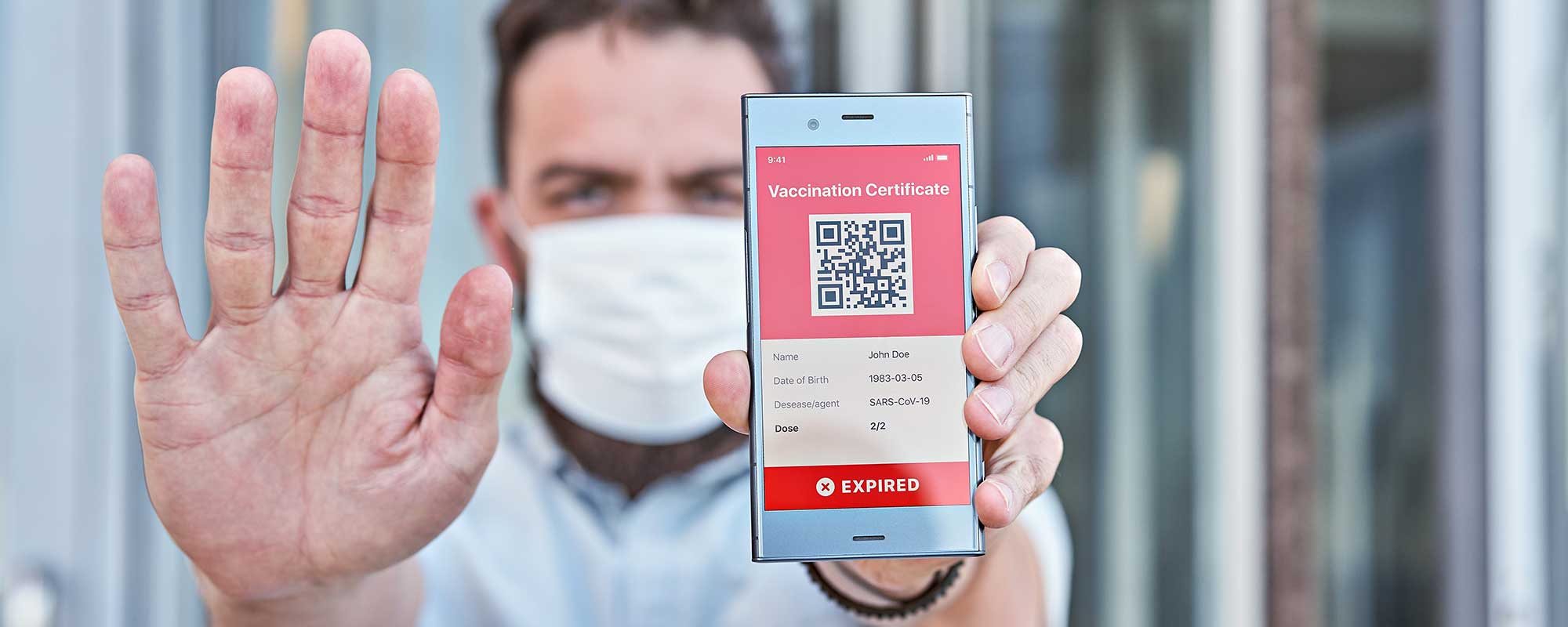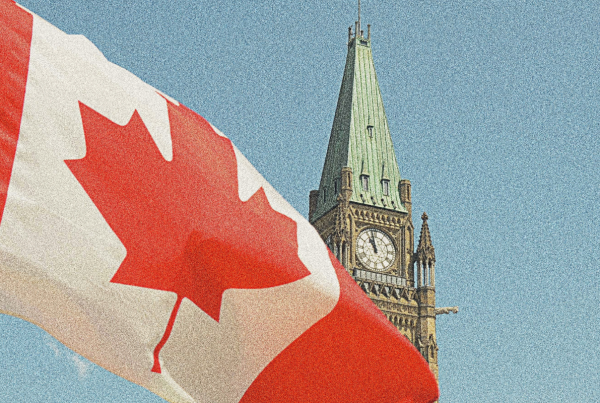May 25, 2020.
As we flounder about looking for ways out of the COVID-19 climate of fear, and the economic debilitation caused by attempts to flatten the curve, we’re going to hit on a few really terrible ideas. An immunity passport is one of those.
The idea is deceptively simple. The digital or paper “passport” would be issued to individuals who test positive for COVID-19 antibodies. There is a hypothesis that people with these antibodies have some protection from the virus and are therefore ‘safer’ to return to work or move through society more freely. It follows that those without these passports would be afforded less freedom in Canada.
So what are the problems (plural) with this scheme? First, it might be based on a scientific fallacy. We don’t yet understand the virus well enough to understand what it means to have antibodies for it. We don’t know if having them makes you immune, or how long any protections provided by antibodies might last. Studies are underway, but reliable research takes time. We can extrapolate, based on other similar viruses, but one thing we’ve learned through this experience is that this virus is different and our understanding of it is evolving and woefully incomplete. Testing, too, is complicated by the fact that tests are being rushed to market without strong independent verification so accuracy rates are variable and published rates may be unreliable in some cases (in an extreme case tests used in one US city were said to have accuracy of up to 97% but found to be only 20% accurate).
A model based on incomplete understanding and lousy tests opens the door for life-altering mistakes—both by encouraging a false sense of safety for those who have antibodies if they turn out to provide only fleeting or incomplete protection, and by penalizing people, denying them access to employment or other opportunities, based on false negatives that miss evidence of antibodies. For a government to rob people of a constitutional right (liberty) based on a justification that amounts to an unproven hypothesis (antibody passport) is the definition of unconstitutional.
Yet that’s not the worst problem.
The worst problem is the dangerous legal categorization of human beings: safe, unsafe, at risk, other. We know what happens when we create social systems dividing people into categories—abuse, discrimination, and oppression.
Consider employment, for example. Front-line service jobs that can’t be done remotely are disproportionately held by women, newcomers and people of colour. They are exactly the jobs where employers seek proof that their workers are safe—one that could be marketed to the public. All cashiers open and all have The Passport! Faced with the potential for being denied employment absent a positive antibody test, such a system has the potential to encourage people to deliberately expose themselves to the virus in order to get sick, hopefully not die, and ultimately have the antibodies that allow them to work and put food on the table. Again, those most likely to be driven to such an extreme are the least powerful in our society. Those unwilling to take such a risky step but who haven’t yet been sick with the virus may find themselves increasingly stigmatized and lacking opportunities. Such an outcome becomes increasingly likely with every new social privilege that relies on having a passport showing you are a “safe” human: so if jobs depend on it, if education depends on it, if access to social, necessary settings like grocery stores depend on it, if the ability to travel depends on it, and ultimately, if informal relationships such as friend groups start depending on it to decide who they spend time with, the impact will snake through lives like a line of toppling dominoes.
And then we get to privacy. The system is predicated on the idea that we should be sharing particular kinds of health information about ourselves widely. That shouldn’t be a given; health information has long been understood as one of the most sensitive, personal categories of information. If governments mandated that sharing of health information, it may not survive judicial review because the science is so shaky. However, what makes this so dangerous is that governments need not mandate its use. By calling it optional, the idea sounds like it respects privacy, when in fact that consequence of not getting a passport makes it far from consensual.
Even if we decide that sharing passes a necessity test (I don’t, partially on efficacy grounds, but some might), for an immunity passport system to work, there will have to be a new surveillance infrastructure to facilitate the collection and sharing of this personal health information. This will involve both the bodies providing the immunity certification, be they government or private sector, but also potentially those who ask for the ‘proof’ to be shared. The more widely used the passport would be, the wider the risk of data misuse, or data breaches. Cast your mind back to all the places you used to enter back in the pre-self-isolation era—sporting events, concerts, bars, stores, schools, offices– and whether you’d trust them to create and maintain sophisticated data security protocols. Rules around who collects the data, who gets to use it and for what, might start out narrowly, with privacy in mind, but the risk that over time those rules will loosen and shift is real. Let’s face it, 3 months ago in Ontario, police wouldn’t have access to positive test records for individuals with COVID-19, now they do, because someone decided, without good justification, that it would help them do their jobs more safely. In the name of risk mitigation, it’s easy to imagine insurers, landlords, service providers, travel services (from vacations to public transit) all making arguments that knowing who was ‘safe’ would protect them while doing their jobs, too.
An immunity passport app cannot plaster over the truly difficult policy implications of the choices Canada will have to make to help people stay safe and well as we re-open our economy. Rather, this is an area where a new layer of technological intervention will bring with it social consequences that require extensive, open, and really difficult debate in a complex problem space. Not a silver bullet, but very possibly a poisoned chalice.
About the Canadian Civil Liberties Association
The CCLA is an independent, non-profit organization with supporters from across the country. Founded in 1964, the CCLA is a national human rights organization committed to defending the rights, dignity, safety, and freedoms of all people in Canada.
For the Media
For further comments, please contact us at media@ccla.org.





